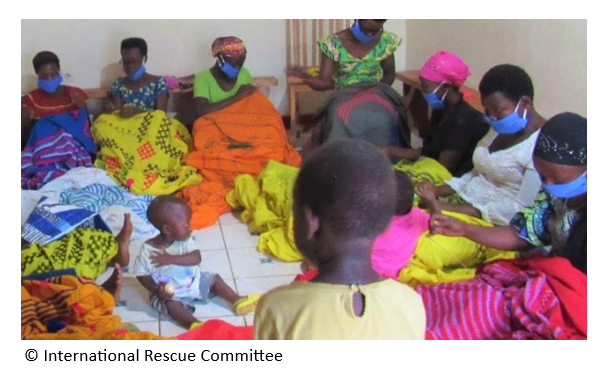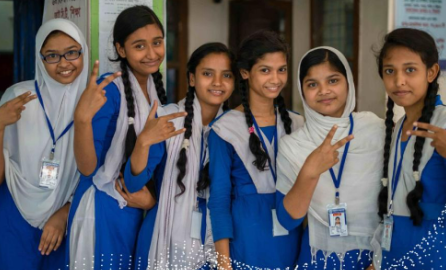Responding effectively and with accountability to women and girls experiencing GBV in humanitarian settings

-
Gender marker: G2-Promotes gender equality as a primary objective
-
Period of implementation: 2022-2024
-
Amount: EUR 3,800,000 (2022 & 2023)
-
Geographical area: Sub-Saharan Africa
-
(Co-)funded by: Ireland
-
Implementing partners: International Rescue Committee and a variety of local organisations
-
GAP III’s Areas:
-
Gender-Based Violence
-
Sexual and reproductive health and rights
-
Equal participation and leadership
-
In a world where gender-based violence affects millions of people and prevents many women from reaching their full potential, addressing both the causes and its effects is a priority for Irish Aid to ensure that policies are in place and are effectively implemented.
A good example of this commitment is the Irish Aid-International Rescue Committee Strategic Partnership, which aims at improving preparedness, prevention and response to gender-based violence and protecting women and girls in humanitarian emergencies in the Horn of Africa. Based on a gender analysis that takes into account different grounds of discrimination, the intervention seeks to understand the position of women and girls in each unique context and to adapt programming to transform gender discrimination and other intersecting inequalities. In particular, those living in the most vulnerable situations, such as women and girls with disabilities, people with diverse sexual orientations and gender identities, or coming from different ethnic, religious or age groups are identified. This is done using vulnerability criteria and often together with local actors like refugee community leaders as is appropriate and safe. This strategic partnership based on five pillars supports a holistic framework of complementary gender equality and women’s protection and empowerment activities. Under the Gender-Based Violence Response, Preparedness and Recovery Pillar, it aims at providing lifesaving gender-based violence (GBV) response services, actively engaging with women and girls from crisis-affected populations. It also carries out community-level advocacy to address norms around GBV and works to build the capacity of local NGOs working on response.
In particular contexts of a GBV Emergency Response, activities under the second pillar, apart from establishing life-saving services for women and girl survivors of GBV, focus on advocating for urgent action to reinforce the protection of women and girls in the initial weeks after a sudden onset emergency or spike in existing protracted crises.
Furthermore, a third pillar focuses on evidence-based policy and advocacy actions aimed at influencing and increasing leadership across the global humanitarian system to ensure that the resources needed are in place to effectively prevent and respond to GBV against women and girls in acute and protracted crises.
“We came to IRC for help after we had lost hope of living, our self-esteem, some of us had suicidal thoughts and the surrounding community described us as worthless or unhappy women. We had no means of survival, our children dropped out of school due to a lack of means to provide for school fees and materials. Some of us, because of great difficulties in providing for our basic needs and feeding our children, began to work as sex workers. Moreover, some of us no longer want to live with our husbands because we have been subjected to multiple acts of violence”, explain members of the Village Savings and Loans Association “Umukenyezi arashoboye” (The Woman is able) in Burundi, supported by IRC, who come together to cooperate and overcome the challenges of violence and poverty they face.
“At first, we were alone, IRC helped us to set up the group to develop income-generating activities… we share our experiences to strengthen each other. At the beginning, we were desperate women without hope of living, but now we are hopeful, and we are testifying that women can, they are capable.”
By viewing women’s protection and empowerment activities as a multifaceted approach to addressing GBV, through the Strategic Partnership the IRC provides GBV mental health and psychosocial services, as well as livelihood support. As shared by one GBV survivor and IRC client in Burundi, “When I visited the IRC office I was warmly welcomed. Because I had no clothes, the person in charge of the centre gave me clothes for myself and my child and a hygiene kit. As a GBV survivor, I received emotional support and I have been then transferred with my baby to the Seruka centre, a health centre for the care of GBV victims.”
These three pillars are supported by two additional ones focused on consolidating and sharing the main lessons learned (including a learning forum) to promote adaptive, inclusive and accountable actions to all women and girls in acute and protracted emergencies, as well as enhancing management, coordination and quality assurance across all pillars. Besides these five pillars, the Strategic Partnership includes a rapid response component to ensure that the most vulnerable women and girls in refugee, IDP (Internally Displaced People) and host communities have access to life-saving services and protection during sudden onset emergencies or spikes in protracted crises.
Furthermore, this intervention stands out for tackling the root causes of gender inequality, transforming harmful gender norms and Engaging Men Through Accountable Practice (EMAP) that places women’s and girls’ voices and decision-making at the heart of GBV prevention efforts to ensure that these norms are transformed within the community, the EMAP groups and the prevention team dynamics.
Therefore, thanks to this comprehensive approach and its exclusive focus on gender equality and women’s protection and empowerment, this strategic partnership represents an added and quite unique value in the emergency and humanitarian sector. So if you want to know more, do not hesitate to read the 2021 and 2022 learning briefs.
